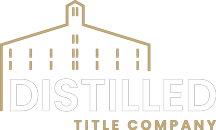The Prime Lending Rate – sometimes just called “Prime” - is the interest rate that banks charge each other for overnight loans. Some consumer rates – like ARMs – are set in relation to Prime.
In the US, Prime is affected by the Federal Reserve lending rate to banks; historically, Prime is about 3 percent above the Fed rate.
The video shows an example.
- The Federal Reserve loans to Bank A at 1%
- Bank A loans to Bank B at 4%
- Both banks – A & B – will recalculate variable-rate loans like ARMs on that 4% Prime figure.
ARM rates are frequently defined as “% above Prime” – that gap is usually called the “margin” or “spread.” Just remember those 3 layers in Prime: Federal Reserve Bank A and Bank B and finally, YOUR rate.
